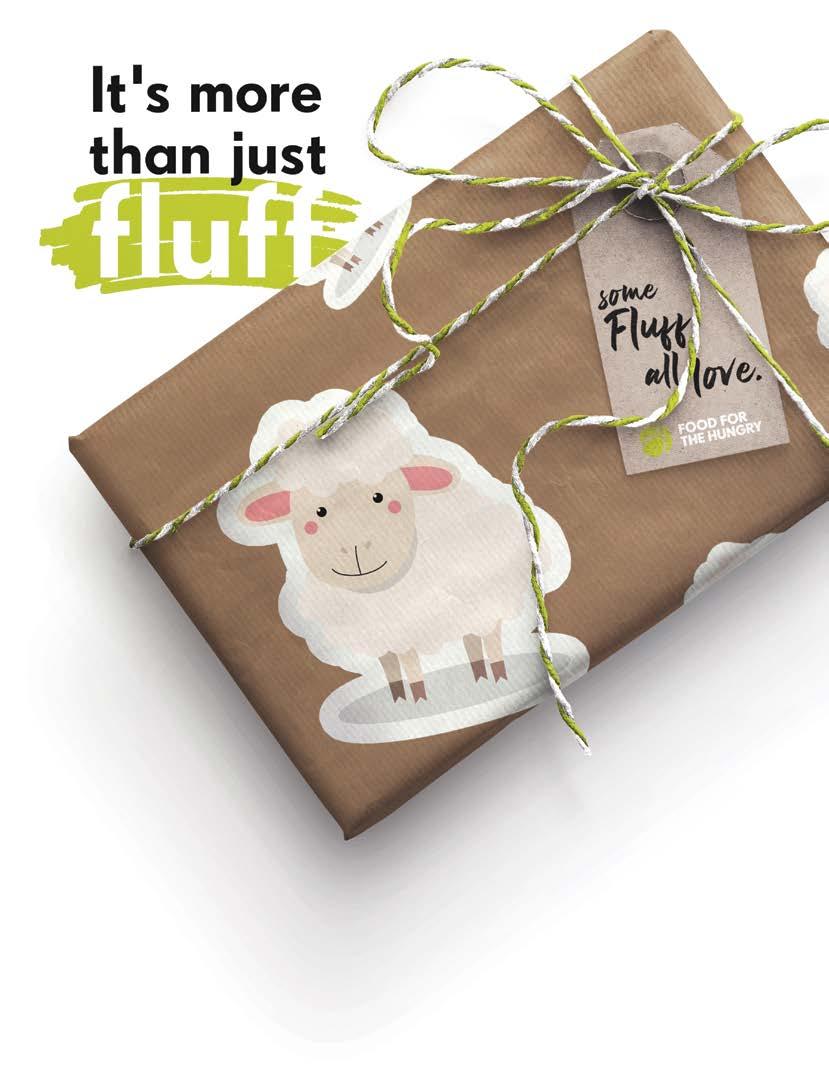STORIES OF HOPE FROM AROUND THE WORLD
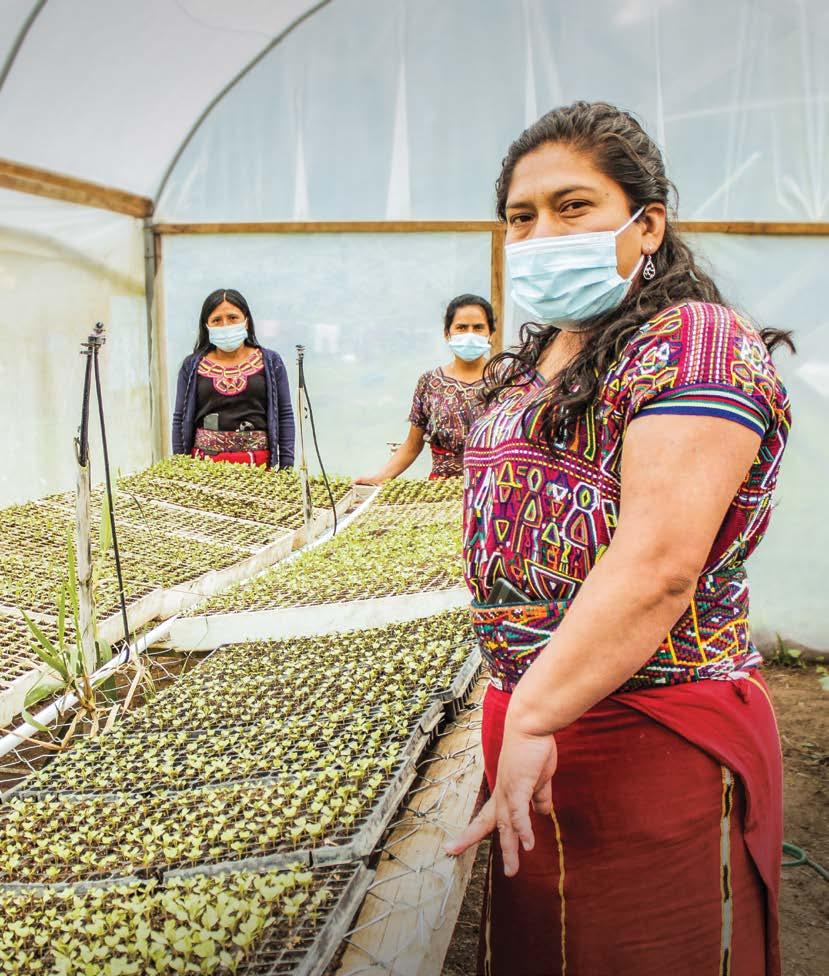


Hope Delivered!
Great Grand Sponsorship
Cultivating Empowerment
Lend Your Ear to Hunger
Recipes: Grilled Beef!
Heroes of Transformation: Meet Chun Ul
Using What You Have
Someone to Lean On
ISSUE 29
FALL 2021
Food for the Hungry (FH) Canada’s seasonal publication, celebrating stories of hope from partnered communities around the world.
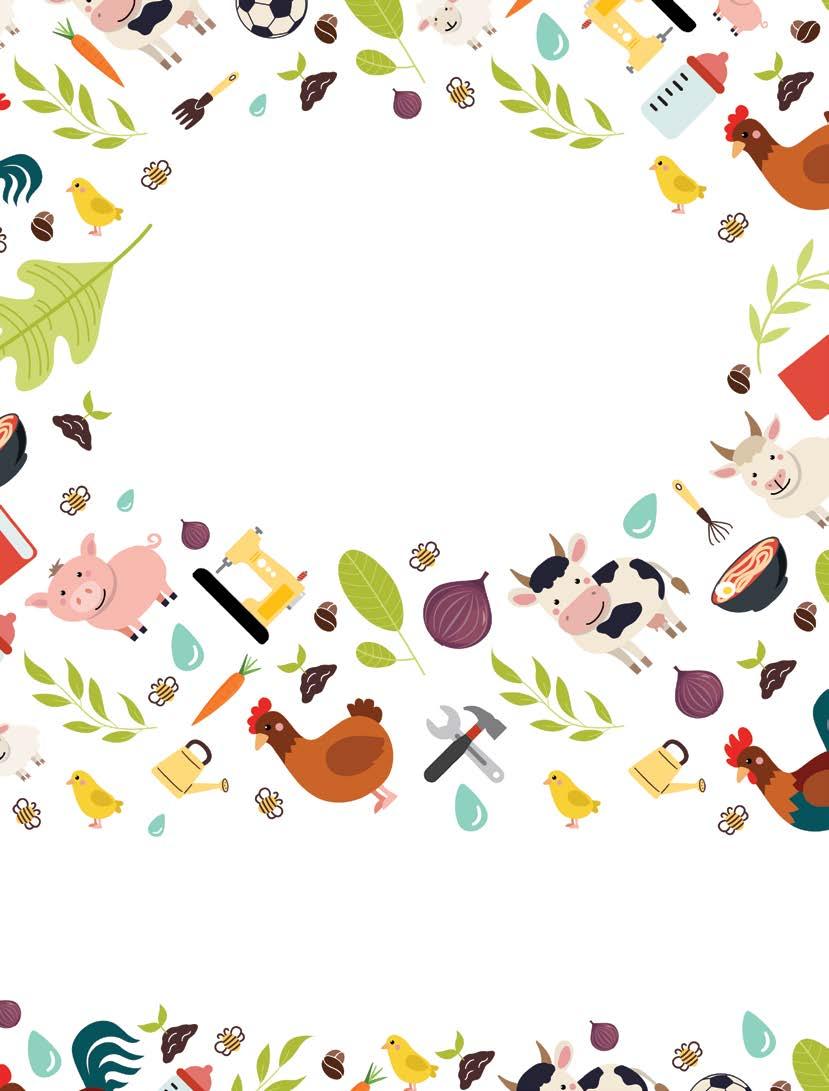
Editorial: Eryn Austin-Bergen, Colton Martin, Mark Petzold, Michael Prins, & Sarah Harrington
Design: Mark Stewart
Contributors: Clint Bargen, Paola Cardona, Kim Cruson, Rhonda Davison, Jack & Dianne DeJong, Ingrid Paola Delgado Arana, Harriet Aloyo Nyeko, Thidarat Phoosit, Dean & Stephanie Reddicopp, Kaylee Shirk, Noeun Sony, Shelaine Strom, Musu Taylor-Lewis, Catherine Tuhairwe, Chun Ul, Kari Petzold Mark Petzold, and other valued staff and friends.
Where there’s a will, there’s a way. I know this because I’ve seen the strong will of FH partner community members to do things I never could have imagined.
It’s easy to dream big and then be discouraged by not having the resources, time, or money to make your dreams reality. But what’s special about members in partner communities is this—they use what they have and more than make it work, they begin to thrive.
A group of women in Guatemala (p. 8) banded together to start an agricultural business, and even sell seedlings back to FH to be distributed to other farmers. Their resourcefulness is changing things for all the women in their community!
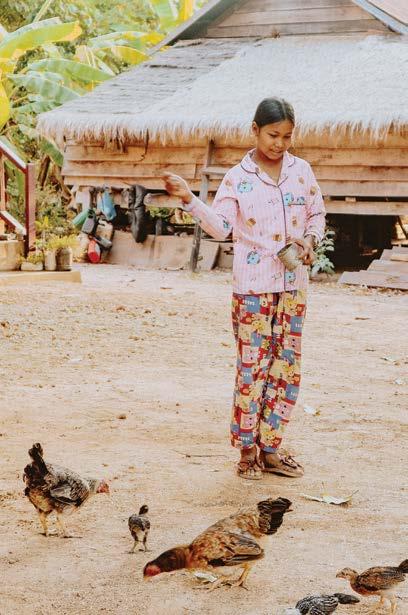
An orphan named Sylvine in Rwanda (p. 22) was forced at a young age to care for her siblings and her own child, but with a few animals, began breeding and selling them to support her family. Without her tenacity, her family may not have survived.
Keep paging through this issue of Hope Notes for more stories about people faithfully persevering to make their world a better place. I hope it inspires you like it did for me!
Gratefully,

Page 3
Page 6
Page 8
Page 12
Page 14
Page 16
Page 19
Page 22
Food for the Hungry (FH) Canada is a Christian, non-profit organization dedicated to facilitating sustainable, community development in order to bring about long-term transformation for those stuck in poverty.
Through project development, Child Sponsorship, and emergency relief, FH Canada strives to relieve all forms of poverty—physical, spiritual, social, and personal.
Our Purpose:
To end poverty, one community at a time.
Our Promise: To graduate communities from poverty in 10
Shawn Plummer President & CEO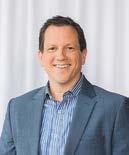
Married with seven children, Oliver is an excellent mother who used to worry about her children’s fragile future.


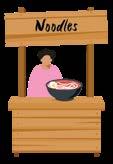

“Life was generally hard in the past,” she remembers. “As a family we struggled a lot to make ends meet.” Like many families in their rural farming community, Oliver and her husband didn’t have access to the knowledge or inputs (like expensive fertilizer and good quality seeds) they needed to make a living off their land. As a result, their precious children didn’t always know where the next meal would come from.
That is, until someone like you purchased Fruit and Veggie Seeds from the FH Canada Gift Guide. Not only did Oliver receive seeds to plant in her garden, she also received agricultural training that helped her learn practical techniques to help her garden flourish.


“As an active farmer, I have benefited from FH farmer training. As a woman, I seriously acknowledge that FH has empowered us, socially and economically!” exclaims Oliver. “We grow vegetables that have improved our family nutrition and are a source of income to meet other essential family needs like cooking oil, soap, and savings.”





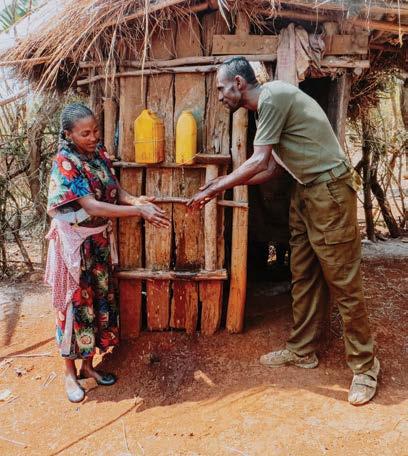
It’s hard to get much done when you’re always getting sick. Fayisa’s family struggled with repeated bouts of illness. His four children were especially affected. Because they didn’t have a latrine at home, they had to find places outside to use the toilet; there wasn’t any water under the trees to wash hands. This lack of access to sanitation and hygiene, combined with having no choice but to drink contaminated water, caused the children to have chronic diarrhea.
Thankfully, a generous Canadian donor purchased the Clean Water Tap and the Clean Toilet from the FH Canada Gift Guide. This purchase helped Fayisa’s family set up a water tap outside their outhouse, and to attend training workshops on maintaining healthy hygiene in the home! Along with the training, FH provided a concrete latrine slab to Fayisa’s family so they could have a clean and safe toilet at home.

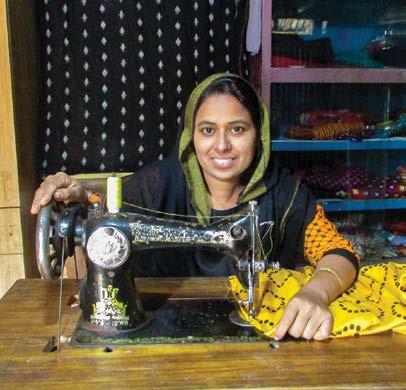
Soma wasn’t used to earning money for her family. As a stay at home mother, she didn’t think there was anything she could do to effectively help her family income. Her family was poor, living in a 192-squarefoot tin house. And she believed that her life would always be this way.
Until one day, a generous Canadian donor purchased a Sewing Machine from the FH Canada Gift Guide.
Soma received training on how to efficiently create and tailor clothes for income. Soon, her funds began to roll in. Each month, she added an additional 4500 taka ($70 CAD) to the household income. “Tailoring helped me to overcome poverty,” she explained.

“I am wholeheartedly grateful to FH for arranging such training sessions and developing my skills. I wouldn’t be able to earn a single penny without you! I cherish this opportunity to participate in training and become independent."
Ten years ago, Rath Mom was in a desperate situation. She and her husband worked as day labourers, both making barely enough to survive. Her family used to dig for crabs and collect snails to eat. They used to go to their neighbours to ask for rice. “My husband and I would look for any possible way to find food and sources of income, even outside the community, to support our family by leaving our children behind at home.” Worried for the well-being of her children, Rath began looking for another solution. And she didn’t have to look far. Soon, an opportunity came knocking on her door. After a donor like you purchased the Help A Family Start A Business from the FH Canada Gift Guide, FH staff were able to set Rath up with the funds she needed to start her own noodle shop!
Duong Hay, a member of the Ta Siem community, explains how he’s seen a change in Rath and her family. “After they started running their small business [selling noodles, drinks, and meatballs], they could earn more money to support their family and have time to spend with their children.”

For even more stories about what can happen when you purchase an item from the Gift Guide, go to fhcanada.org/blog
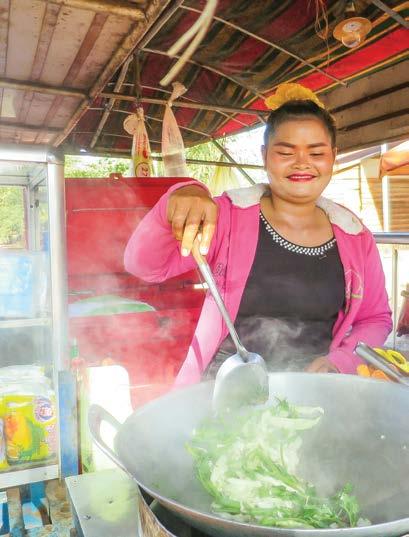
"As an active farmer, I have benefited from FH farmer training. As a woman, I seriously acknowledge that FH has empowered us, socially and economically!"
— Oliver
“My family is transformed! We struggled in the past and now we can breathe better because we can provide more for our family.”
— Rath
If you sponsor a child, you know it’s all about the relationship. Pinning your sponsor child’s photo to the fridge, opening their drawings, receiving updates about their community on its way to graduation, scrawling your own letters in return. Lives are changed though relationships—but that goes both ways!
Jack and Dianne DeJong (Edmonton, AB), sponsors with FH since 2016, have a new take on what relationship means when it comes to sponsoring a child.
“It all started with the grandchildren,” says Dianne. “We have 10 grandchildren, and in 1984, we sponsored a child for the first time.”
“Been in this sponsorship business for a long time!” interjects Jack.
Jack and Dianne DeJong have led an exciting life. Jack immigrated in 1954, eventually settling in Edmonton, AB to “find Dianne”. From owning a cookie manufacturing business (that produced over 200,000 cookies per hour) to managing rental property to opening a life coaching and training centre in 2017, they’ve done it all!
“We’ve been blessed beyond measure,” explains Jack. When their kids started having their own children, they were keen to involve family in that blessing—and give back in a unique way.
For each grandchild born, Jack and Dianne sponsored a child on their behalf. Then the involved grandparents passed off the relationship and correspondence so their grandkids could grow up with a friend in their sponsor child. “I told the [grand]kids, if you want these sponsor kids, you look after them—you write to them, you
Then about five years ago, as their grandkids began having kids of their own, Dianne and Jack attended a Tim and the Glory Boys concert and heard an inspiring message about lives changed through Child Sponsorship with FH. Jack was moved and suggested they start up the sponsorship model again, this time for their great-grandchildren!
When asked what they love most about their model—one that they believe other grandparents could copy—they quoted a favourite song, “Others”, by David Mainse, “Lord, help me live from day to day, in such a self-forgetful way, that... my prayer shall be for others.”
“It’s so special for us to make a difference in a child’s life,” offers Dianne. “To give them a chance for school and for a life and to know the love of Christ— this gives our grandkids something to think about other than their own needs.”
When granddaughter Kaylee had a little girl, Jack and Dianne set up a child sponsorship with FH to connect their new great granddaughter, Amara, up with a “new friend”. At 1 ½ years old, Kaylee showed Amara the photo of their sponsor child, and took Great-Grandpa’s advice to pray for them. Amara folded her hands and prayed for their new friend.
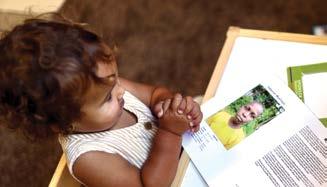
Jack and Dianne now have 11 great grandchildren and 11 sponsor children! This unique approach to child sponsorship has created friendships that have shaped both the DeJong grandchildren here in Canada and sponsor children around the world.











When disaster strikes, children often suffer the most. FH Child Sponsors’ generous round-up gifts to the Children in Crisis Emergency Fund help FH respond quickly.
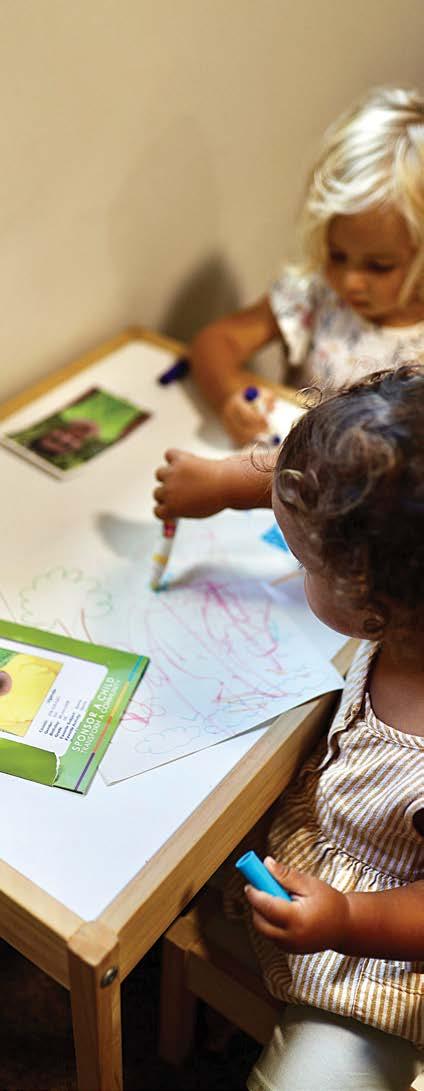
Recently, Child Sponsor support went above and beyond monthly sponsorship to help rescue lives in Tigray, Ethiopia and northern Guatemala.
The Children in Crisis Emergency Fund helps feed, shelter, and love thousands of children and their families caught in dangerous situations. Thank you for showing up when they needed you most. By rounding-up your monthly sponsorship gift, you continue to support a child and community on their development journey, and reach out to help children at risk.
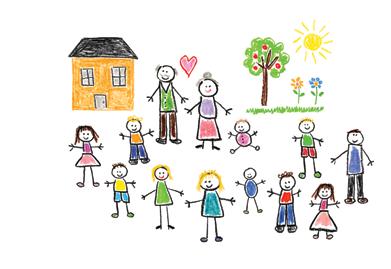
Curious about child sponsorship for yourself, a grandchild, or even a great-grandchild? Visit fhcanada.org/sponsorship to learn more, and see how a relationship with a child moves an entire community toward sustainability! Or call our team directly at 1-800-667-0605 to talk about ways you and your family can help a child and their family.
Rounding up adds funding to the Child in Crisis Emergency Fund Children to help children and their families in immediate emergency.
To round up your monthly sponsorship and give to children in crisis, call or email the Sponsorship team at 1-800-667-0605 or sponsorship@fhcanada.org.
 Jack and Dianne's great granddaughters Amara (front) and Elaka (back) apply their creativity to nurturing a relationship with their family's sponsor child. Along with their 11 great grandkids, Jack and Dianne sponsor 11 children (photos on the left side of the page)
Jack and Dianne's great granddaughters Amara (front) and Elaka (back) apply their creativity to nurturing a relationship with their family's sponsor child. Along with their 11 great grandkids, Jack and Dianne sponsor 11 children (photos on the left side of the page)
In North America, the phrase ‘business woman’ might trigger the image of power suits, striking presentations, and hurried cups of coffee while taking yet another conference call. But one group of women in Guatemala is proving to be so much more.
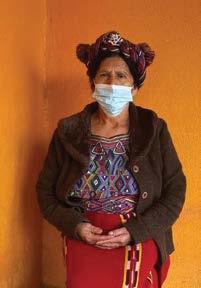
The pressures of climate change, the hunger crisis, and COVID-19 showed us that, while business women look different in different contexts, they are resilient. Many women kept up the responsibilities of their careers, while also juggling the difficulties of children’s remote learning and caring for their families during lockdown. Around
the world, business women faced challenges head on—and the members of the self-named, selfmade Women for Sustainable Development in Acul, Guatemala, are no exception.
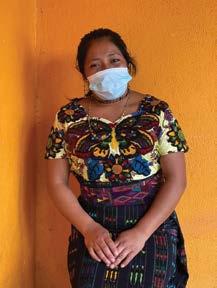
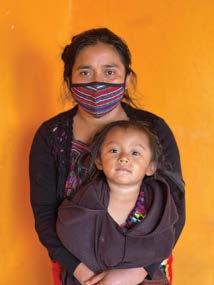
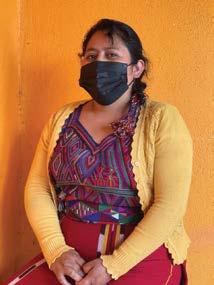

In fact, they are proving to be exceptional. Women for Sustainable Development is made up of twelve hard-working, forward-thinking women from six different Savings and Loans groups. Each group has delegated two representatives to the cooperative and in total they represent 57 women from across the community.
After receiving agri-business training and start-up supplies from FH five years ago, the six groups went into business together. It started with a greenhouse. Since then, the six groups have been working together to increase their income and opportunities. Now, by helping to oversee their Savings groups through coordinating activities, managing new spaces, and promoting their seedling business, women from across Acul and their families are thriving!
These ladies are well aware of the power and potential of their cooperative. So much so that they don’t simply refer to it as a group or cooperative; it’s an “empowerment platform”. It’s done so much more than just raise a few extra quetzales
“We used to think we couldn’t work or generate income, but as [our group] grew, we gradually felt more secure,” said a representative of the cooperative. “Now, we feel like entrepreneurs—and
even business women—because our voice is taken into account and we can help make decisions at home and in the community.”
“For me, the [group] is a source of learning that has helped me in many areas of my life. It’s a means of business and income, which helps improve my life by covering the needs of the home!” said another member.
For these business women, developing a means of sustainable income was crucial. To achieve this, they diversified their income stream by setting up a chair rental service while also growing their greenhouse operation.
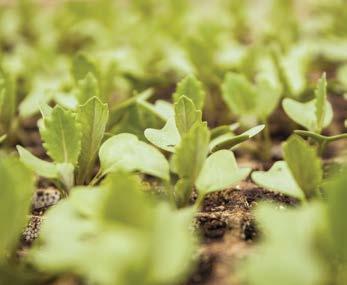
Using the agricultural and business training provided by FH, the women work daily to grow a variety of crops, which has expanded to include onion, cabbage, broccoli, chili pepper, jalapeño pepper, chard, and cauliflower—many crops that do not grow well in gardens in their climate, but are sought after. Plenty of these delicious veggies will be sold in the communities and end up on the dinner plates of families for a nutritious and filling meal. Meanwhile, some of the seedlings are reserved for a different purpose.
The women sell the seedlings to others and even local NGOs, including FH, where the plants will be used to help others learn the benefits of gardening! This is an impactful demonstration of the ripple effects of development. After being empowered by FH, these women are using their training to produce items that will now help empower others.
Together they are able to overcome unique obstacles, too. In the early days of their seedling business, they struggled to transport their products, as the road to the greenhouse was too narrow for vehicles. Each delivery meant bundling up the plants and supplies and attempting to carry them safely down the narrow road without damage. It was a difficult task that took time away from other duties and their families.
Instead of sitting back and watching their business suffer, they jumped into action.
With newfound confidence from FH’s motivational coaching and self-esteem workshops, they presented a case to the mayor, explaining how a wider road wouldn’t just benefit them, but the entire community as well! The mayor agreed. Rallying support from the community, they worked to widen the road. Now, the women move their products with hired transport trucks instead of trundling down the unsafe, narrow road themselves. They’ve paved the way for a successful business, both metaphorically and literally, for themselves and other small businesses in the region.
This confidence and problem-solving mindset are big changes from how things used to be for many women in Acul.
Before Acul partnered with FH, women didn’t often participate in community activities. Men would work, while women cared for their individual homes and families. Some women even thought that community activities were a waste of time. After all, when it’s


tough to put food on your own table each day, there isn’t much energy left to think about the well-being of the community. When FH began to walk with Acul, this all began to change.
A key factor in helping any community move from stuck to thriving is empowering women to step into leadership roles. When women’s voices are lifted up, they’re able to speak with fresh perspectives and offer insight that has previously been overlooked, all for the betterment of the community. Through FH-facilitated coaching, self-esteem training, and leadership development—for women, men, and children alike—women in Acul are empowered to step outside of their comfort zones. Now, they actively participate in community meetings and regular decision-making.
“We have changed the way we see life,” said one woman. “Before, I only took care of things at home, but when I joined a Savings and Loans group and now the platform, I realized I can do much more with my life. I can contribute. I can generate. I can work. There are opportunities I can take and I am capable of doing more things.”
As a result, Women for Sustainable Development’s impact continues to spread. Through growing and delivering vegetable seedlings, they’ve also inspired many families throughout their community (and beyond!) to plant family gardens. The members work to create new Savings and Loans groups, strengthen existing groups, support the development of micro-enterprises, promote and deliver seedlings
that improve family health, and partner with FH to reduce childhood malnutrition.
“Working for the families of the communities is a blessing. Losing fear and being able to manage is one more step [forward] in our life. Being part of a group means to continue making ourselves known and opening spaces for participation and intervention.”
And they do not plan to slow down. “We will continue to unite more women to our group. Our vision is to have an office where we can create jobs for girls and boys in the community and save our children from bad influences.”
The members of Women for Sustainable Development proudly own the titles of business women and entrepreneurs, but there’s another title they wear just as proudly. “We are still moms,” explained one representative, “but this platform has strengthened our self-confidence because we now realize we can generate an income while also being a mother. The independence of generating our own income has positively contributed to our roles as moms!”
This self-confidence is extending beyond the women in the platform. Women for Sustainable Development members are acting as role models
for other women in the community and the next generation. “Children are impacted because they see a change in the roles of women. Now, children are aware that their mothers have the competency to also generate income. This is empowering because it sets a positive example of the roles of women for future generations.“
Acul is changing—physically, nutritionally, economically, socially—one woman at a time.

True transformation sparks when people rally together, just like the members of Women for Sustainable Development are rallying together to bring change to Acul, and just like partners like you are rallying around vulnerable communities! This story is only possible because you provided support for start-up materials, agri-business training, and leadership coaching! Thank you! Follow us on Facebook and Instagram to see your generosity in action!
@fhcanada @foodforthehungrycanada At Women for Sustainable Development meetings, much planning and visioning is done to help the women unite over the values and goals of the group.Food insecurity, mental health, the refugee crisis— what do all these things have in common? They’re all topics featured on Food for the Hungry’s Ending Poverty Together podcast! Together, we tackle tough questions around poverty and explore how ordinary people can make lasting change. This new space has sparked incredible conversations with both guests and listeners.
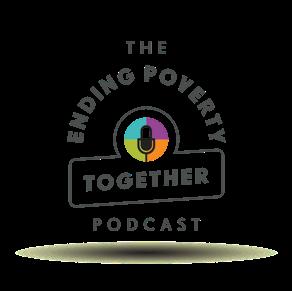
One of these inspiring guests was Musu TaylorLewis of Canadian Foodgrains Bank, who stopped by recently to talk to us about the global hunger crisis. Take a peek at some of the wisdom she shared…
You’ve spoken about a connection between hunger and justice issues. What does it mean for hunger and justice to intersect?
One of the key reasons people face hunger in our world is inequality. There are many underlying reasons for material poverty, like unequal access to work, income-generating activities, and even transportation to markets. If people produce food and they’re not able to take that food to market to generate an income, they can’t exit poverty.
When we talk about food justice, this is what we’re talking about the systems that take food from
being produced right to our tables. When these systems are interrupted, people’s access to food is interrupted. That’s a matter of inequality. We need a world where there’s access for everybody to have enough nutritious food to live healthy and active lives. That’s our definition of food security.
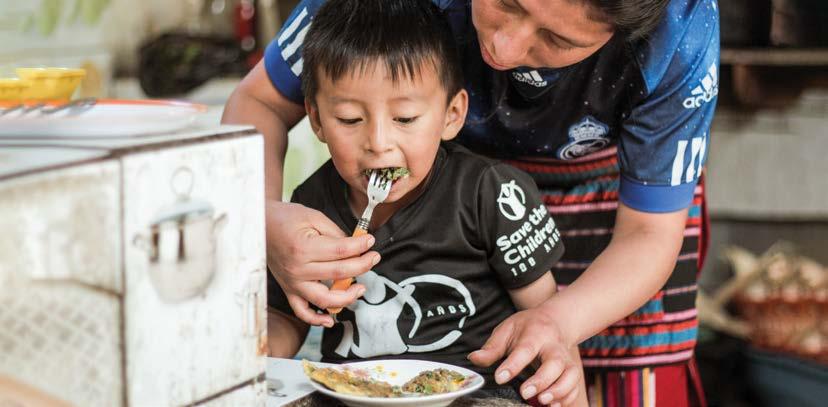
Can you expand a bit more on “food security”?
When you think about coming to the end of the day, what is the question that comes to mind for you? As a Canadian, our question is often, “What will I eat? Am I in the mood for pasta or potatoes?” That question fundamentally shows our security. Our question is not, “Will there be food? Will I have dinner today?” That’s food security.
When we talk about hunger, I worry that it sounds like the same thing that we experience at five o’clock. It’s not the same. Facing hunger can mean not having enough food to eat immediately or having no way of accessing it. It can be looking at the cupboards, thinking that the food will run out in three days and you have no idea how to refill the shelves. That’s food insecurity.
When we talk about food aid, some might say that giving out food is a hand-out system that perpetuates dependency rather than help people provide for their own family. What are your thoughts on this?
I wouldn’t describe emergency food assistance as a handout. I describe it as meeting someone

at a vulnerable point of need. If people have fled their homes because they’re violently unsafe, or if people who have been farming for generations are suddenly facing drought, this is a crisis. In these situations, emergency food assistance is needed. We also often try to move from emergency food assistance into long-term assistance, where we’re supporting families in their own efforts to develop long-term solutions for food security for their families.
This focus on community development is one of the many reasons why Foodgrains Bank and Food for the Hungry align. This makes me wonder, how can our listeners be involved? How can individuals help address hunger issues when they’re living their lives here in Canada?
Start with what you have. Many of us are familiar with the story of Jesus feeding the 5,000. What strikes me about that story is that, when the disciples started panicking about the overwhelming nature of the need, Jesus asked a surprising question: “What do you have in your hand?”
I would say to listeners, what do you have in your hand? We each have something we can give. We can start with advocacy and go to our MPs. We can learn more about why hunger and poverty exist in the world. We can give of our time and money and prayer. Every little bit counts. We talk about big numbers, but it starts with one person. When thousands of Canadians give what they’re able to give, we’re able to do a whole lot. When we place what we have in God’s hands, that’s where miracles take place.
If you liked this episode, you might also be interested in “Uprooting Stereotypes Around Refugees” with guest Richard Belcham, “Isolation, Mental Health, and You” with guest Daniel Whitehead, or one of the many other engaging episodes! New episodes premiere every other Monday. Add some inspiration to your week with a listen!
"When we talk about hunger, I worry that it sounds like the same thing that we experience at five o’clock. It’s not the same."
— Musu
Though barbeque season may be winding down in Canada, partner communities are often grilling meat year-round! For many families, beef is a treat that feeds more than the entire family. It’s not too late for you to try out these mouthwatering steak recipes!
Recipe submitted by
Ingrid Delgado Arana, Donor Relations, FH Guatemala
Churrasco is a traditional Guatemalan steak served rare with a zingy tomatobased salsa called Chimrol.
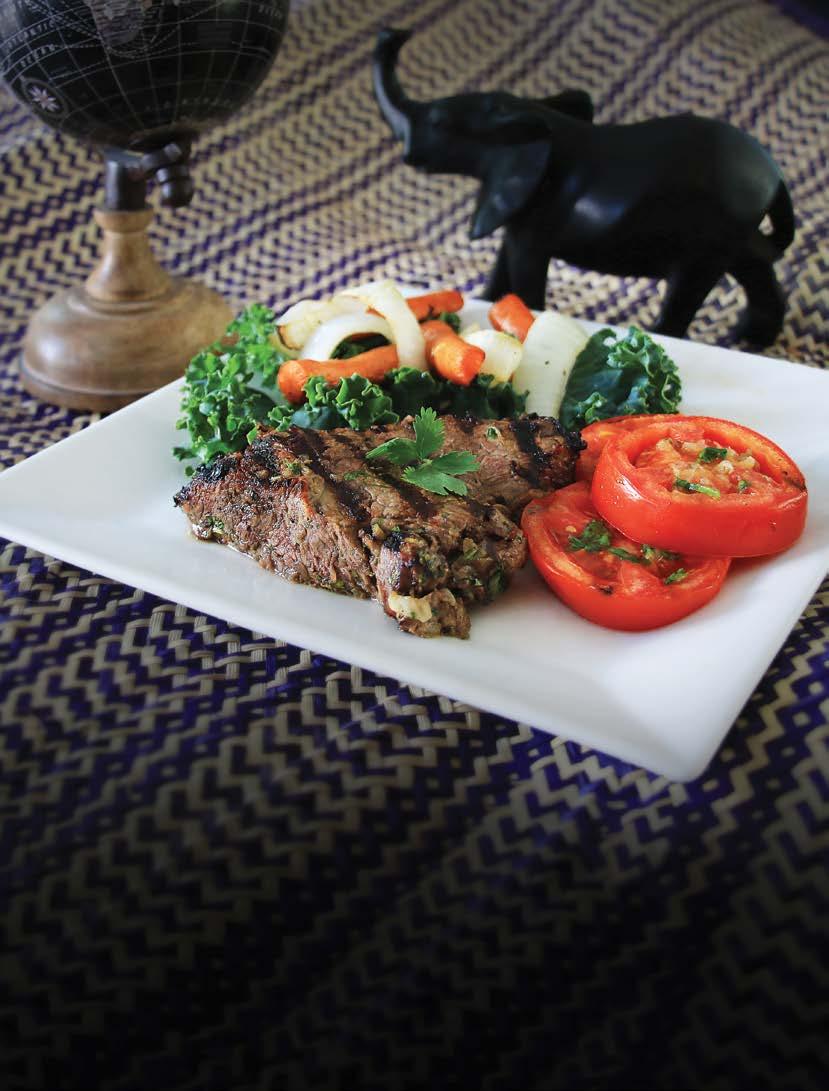

1. Prepare marinade by combining the oil, orange juice, garlic, and onion. Pour into a large sealable container (or bag), add the steaks, and massage to coat the meat. Refrigerate overnight to allow the flavours to permeate the meat.
2. For the Chimro, grill the tomatoes whole in a frying pan over medium heat to bring out the flavours. Grill and turn until all sides of the tomatoes are charred and the skin splits. Transfer to a bowl and peel the skin from the tomatoes (watch out—they'll be hot). Mash with a fork into a watery paste.
3. Finely dice the onion and cilantro. Add to the mashed tomatoes.
4. Add the lime juice of one lime. Salt to taste. If you enjoy a spicy kick, add a dash of your choice of diced peppers or pepper flakes.
5. When ready to cook the steaks, preheat the barbecue on high. Bring the grill up to 550-600F. Remove them from the marinade and place them on the hot grill. Barbeque for 3 minutes on each side—flipping the meat only once. Remove from the grill, cover, and let rest for 5 minutes.
6. Slice the meat into 1 thin slices. Plate and serve with the chimrol spooned on top.
Churrasco
1/3 cup oil
1 cup orange juice
15 cloves garlic, smashed
1 cup onions, thinly sliced
4 large (7-8 oz) steaks
Chirmol
6 medium tomatoes
1/2 white onion
½ cup cilantro
1 lime
salt to taste
It's time to experiment with some delicious grilled beef, smelling of spices and ginger, straight from FH staff in Uganda.


1. Prepare marinade by combining onion, ginger, cilantro, olive oil, lemon juice, salt, and pepper.
2. Transfer meat to a sealable container. Coat meat with marinade. Let marinate for 30-45 minutes.
3. When ready to cook, preheat the barbecue on medium temperature, about 450F. Grill steaks on the barbecue for 5-6 minutes on each side, depending on thickness of cut, or for desired rareness.
4. Add tomato rounds to the grill. Brush with excess marinade. Grill for 4 minutes each side, until blackened grill marks show.
5. Plate the steak with tomatoes, and enjoy!
4 medium (6 oz) beef steaks
1 white onion, grated
1 thumb ginger, grated
1 bunch cilantro, diced
1/3 cup olive oil
1 tbsp lemon juice
1 tsp salt
1/2 tsp crushed black paper
2 tomatoes, sliced into thick rounds
Grilled Beef Catherine Tuhairwe, Logistics Manager, FH Uganda Harriet Aloyo Nyeko, Business Development Manager, FH Uganda recipe submitted byA few years ago, Chun Ul was a newcomer to the community of Ta Siem, Cambodia. But she hasn’t let that stop her from becoming a key leader in her community, setting an example for others to follow!

By joining a Savings group, Chun Ul has taken on the challenge of opening up a kiosk selling delicious cakes and snacks to supplement her household income. She’s proud of the work she’s done, but believes the best is yet to come!
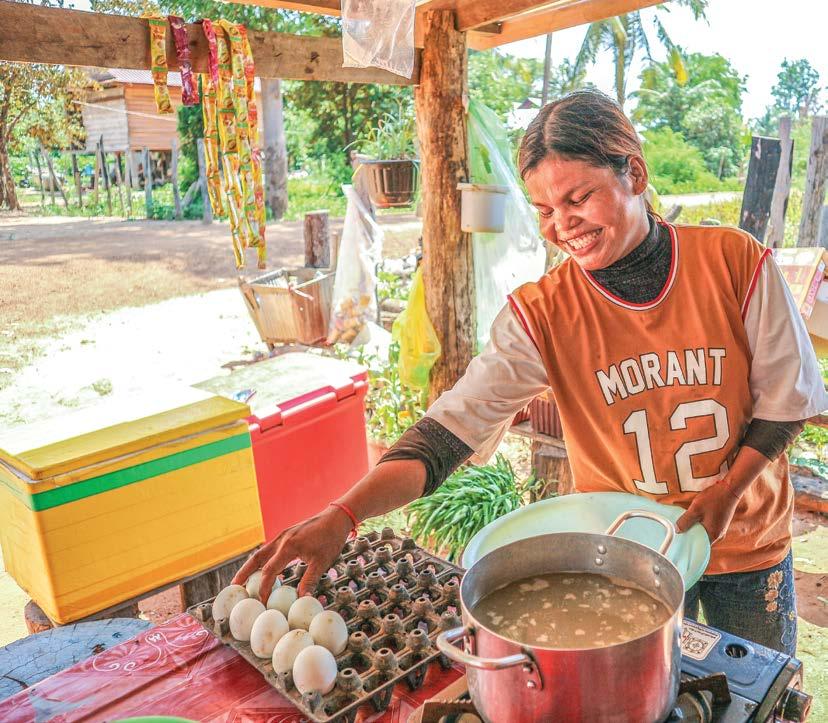
Noeun: What was your life like before FH began walking with Ta Siem?
Chun: Before we joined FH programs, our family was so lonely and quiet. We were new to the community, and we found it difficult to connect with others, especially those who were not friendly. Because of our poor living conditions, we lacked the money to spend for other costs and we were not bold enough to borrow from and depend on anyone in the community. As for community development activities, we didn’t have time to focus on those because our financial crisis kept increasing. My eldest son was afraid of other children, shy toward
everyone, and less courageous and harmonious because of our family’s place in the community.


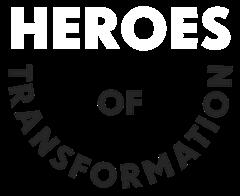
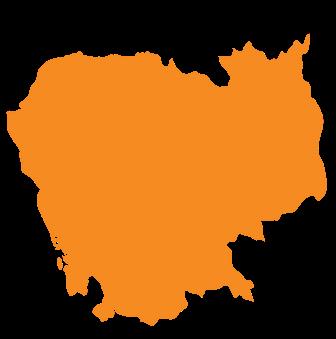

Noeun: How did you begin to get involved with FH’s programs?
Chun: Our village chief called me to attend a meeting with FH staff. When their team selected volunteers for village committees, I was chosen! After I volunteered in the health sector and participated in various training and activities for more than a year, I became a Health Group Volunteer for the mothers group. Since I joined FH six years ago, I have participated in many training and sharing sessions such as leadership training, health and nutrition, babysitting and creating materials for toddlers, motivation, and encouraging children to go to school and do self-study at home, making space for children at home, the importance of saving money in the village, making tippy tap, making rubbish bins, trash pit and hygiene kits! I can apply all this to my life and pass them to neighbours as well.
Chun: My life has changed so much! These good opportunities, knowledge, and skills have been a blessing for me and my family. As a child, I could not go to school because my parents could not afford to send me. But now with FH, I’ve gone from someone who did not know much to someone who is able to share with my community. This really makes life better! My family lives happier through these behaviour and mindset changes.
“I never thought that my family would have a greater opportunity for such good knowledge and life skills. I used to think that knowledge was only in school, but the FH program changed this perception.
— Chun, — CambodiaNoeun: It sounds like you’ve been able to learn a lot. How has this impacted your life?
”The way we live our lives also changed. We now drink clean water, help children to be healthier and motivate them to study, and have a good relationship with others. My family is now more active in attending community meetings and training. More importantly, we are motivated by FH staff who always come to visit my family. I feel warmth after the other committees and villagers gave value to my family and treat us with high respect. I have contributed to saving money in my village, which makes it easier for my family to extend our small business in selling groceries. In the beginning, I started selling only a few Khmer cakes in a small stall, but now I upgraded to a large stall and combined a variety of goods that can meet other families’ needs.
Chun prepares boiled eggs to sell as a snack in her stall. Thanks to her Savings and Loans group, she's been able to set up this additional source of income. Interview by Noeun SonyNoeun: What about your community? What are the biggest changes there?
Chun: Relationships in our community have improved so much because now we participate in activities together, especially between the young and the elderly. There is more unity than before through the community development activities such as fencing community ponds and participating in pavilion construction in the village, which all bring a lot of convenience to each family. The environment in the community is almost 100% clean. Each house has garbage bins and toilets, and most people in the community eat nutritious food and live with good hygiene.
Noeun: What has changed in your family?
Chun: Everything in my family has changed.We live, eat, and drink well. Now, I have more courage to advise my neighbors to send their children to school and encourage parents to help teach their children at home after class. Before, I did not dare to talk to anyone because I did not have much education or any specific skills. This changed after I received more knowledge and encouragement from FH staff and other group members. I’m no longer afraid to share my ideas or advise neighbors anymore. I also have started to be involved with other community leaders in community development activities.
Noeun: How do you feel about all the progress you’re seeing in your family and community?
Chun: It makes me feel excited and happy! FH staff understand the value of each of us, including myself.
I never thought that my family would have a greater opportunity for such good knowledge and life skills. I used to think that knowledge was only in school, but the FH program changed this perception. I really thank FH and who always bring different knowledge and educational messages to my community. Despite the pandemic, they are still here to help us understand how to prevent contracting this virus, and encourage our children to continue their studying at home or learn online although their schools remain closed.
Noeun: Is there anything in your community you’d like to see more progress in?
Chun: There are still some shortcomings that I want to see changed in my community! I want everyone to join hands with each other on a common goal, in order to transform this community holistically. Every child should be in school. I also want my community to understand the importance of saving money, which allows us to easily get a loan to expand our business. And for my family, I hope for a better life in the coming years, life with happiness and health!
Thanks to a combined effort from FH Cambodia staff, the community of Ta Siem, and generous Canadian donors, Chun Ui and her family are thriving! For more stories on the transformation in FH Canada partner communities, go to fhcanada.org/blog.
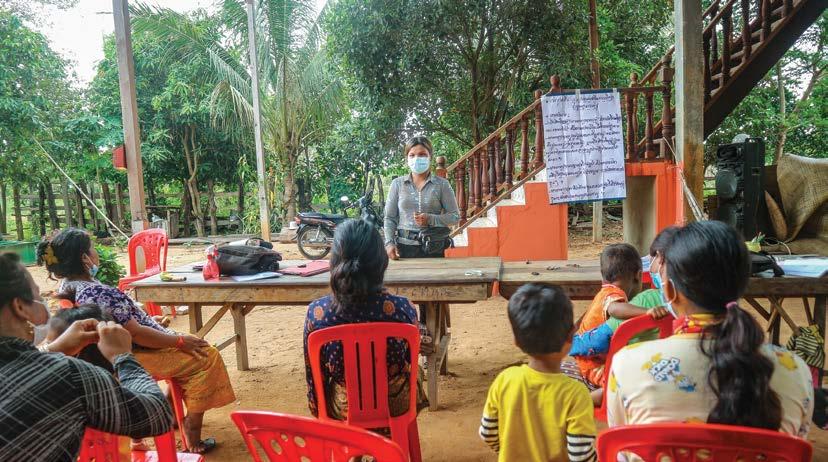
Do you really believe you can help end poverty?
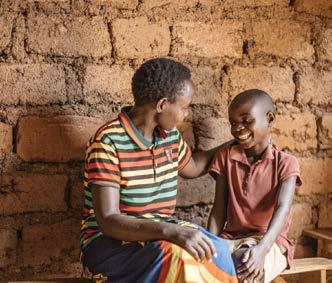
Poverty sounds too huge!
Yes, you can. And it may be as simple as using what you already have.
Consider what you love and what you’re good at—those bits that make you you. These God-given pieces open up avenues for making a difference in your local communities and in global communities, if we only look for it. Here are three Canadians doing just that, using their passions and talents to walk with vulnerable communities!
Meet Stephanie Reddicopp, a talented singersongwriter from Abbotsford, British Columbia. Stephanie is passionate about connecting people to God through music.
At the beginning of 2021, the pandemic had taken its toll, and the extroverted artist was aching to stay creative. During that time, over many emails and virtual calls, her new album, Beauty Maker, was born.

“It’s been a hard season for so many, and the songs
deal with the theme of suffering, how that suffering is used by God, the beauty God creates in spite of it all!” explains Stephanie.
In the midst of finishing the songs, local comedian Leland Klassen reached out to do an event—any event! Leland and Stephanie needed to get out after having been cooped up for months. With pandemic restrictions lifting, they dreamed up an intimate concert where Stephanie could share her new album and Leland could make people laugh.
And that sparked an idea: Why not also connect people with each other again and support an impactful cause? As the two performers brainstormed, the connection to FH felt natural. Stephanie and her family are long-time child sponsors with FH. Both Stephanie and Leland had advocated passionately for FH at worship and comedy events prior to the pandemic.
On July 23rd, the vision became a reality as the Reddicopps hosted Leland for a backyard concert. About a hundred people—friends, family, neighbours—set up their chairs on the lawn to enjoy a lazy summer evening. As the sun set, Stephanie opened with her new songs and Leland had the crowd laughing with his comedy show.
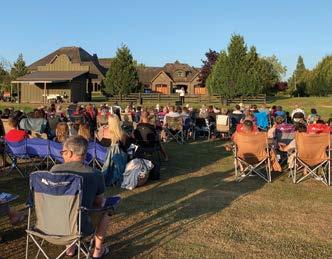
“My heart is to serve God with whatever gifts He’s given me. It’s not about putting on events,” humbly mentions Stephanie. “It’s about taking every opportunity to build His Kingdom!”
In between the music and laughter, Leland shared passionately about Food for the Hungry. Using the concert as a platform, the two performers advocated for communities in need—many of whom
At a Health Group Volunteer meeting, Chun Ul encourages other members to promote child learning at home. Written by Michael Prins & Sarah Harrington Releasing songs written during the pandemic was a small part of Stephanie Reddicopp’s backyard concert. She wanted her friends and neighbours to experience community once again after too much isolation, and to use that time for more—to advocate for the needs in developing communities.are still fighting the pandemic’s effects. Concertgoers listened attentively and even had a chance to learn more from an FH staff member on site.
A simple backyard concert can make a difference! Stephanie is hopeful she can facilitate more intimate gatherings to build community and bring people into the journey of ending poverty, together.
Meet Dean Reddicopp, Stephanie’s husband, avid golfer, and owner of Mid Valley Investments.
Like many dads across Canada, Dean loves golf. But for Dean it’s more than picturesque greens or landing a hole-in-one—he’s passionate about connecting young people to professionals and to something larger than themselves. This includes his own sons, who are now frequenting the fairways, too!
“We want to show our kids what else is out there,” says Dean. “We ask our boys, what are their gifts— which are God’s anyways—and how are we going to be faithful with them? It takes time, energy, and isn’t easy. It takes a step of faith—but you’ve got to act on it.”
Following his own advice, Dean planned a golf tournament. But he didn’t want just a fun-time tournament; he set up this event to connect young, budding golfers with semi-pro and pro golfers.
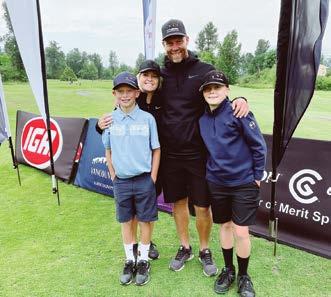
“As a pro athlete or even as a business person, you can get so caught up in your world. To look
beyond that to the next generation and to ways to encourage others in what they’re doing—that’s such a good thing,” offers Dean.
This shared value for mentorship is one of the reasons Dean and Food for the Hungry have aligned. As FH works closely with communities to provide coaching in everything from Savings groups to livestock management to parenting, Dean is using sport to empower others right here in Canada.
The golf tournament was hosted on July 7 at the Cheam Mountain Golf Resort in Chilliwack, BC, as part of the Vancouver Golf Tour, which Dean himself plays on as an amatuer competitor (and actually won a few times!). Approximately 140 adult and junior golfers attended. Youths were connected across communities, developing new friendships as together they learned from professional golfers. At the event, Dean announced a donation on behalf of Mid Valley Investments to FH’s work with communities in Burundi. Dean shared with his community of friends and clients about the impact of FH, and the role they are playing through Mid Valley in ending poverty! He also used this platform to educate about the hunger crisis in Burundi and East Africa.
“That moment to give voice to FH—we don’t know how it will go forward. But those little moments, those little steps of obedience—we may never know the impact!” says Dean.
While still unsure if this golf tournament will be annual, Dean remains passionate about creating opportunities for mentorship and using his connections to share about international need.
Meet Clint Bargen of Simply School Photos and Old Saint Click. Clint loves snapping photos—it’s the backbone to all his business ventures—and his way of helping kids in need!
“Since being a teen I’ve given through FH in small ways,” explains Clint. “I started as a child sponsor and have enjoyed giving practically through the Gift
Clint’s original interest was in film. He moved to Vancouver from North Battleford, SK, to attend film school, and found success directing shorts, Youth Alpha Projects, and even a commercial. But he always fell back to his skills in photography.
For the past 10 years, Clint has been capturing special memories for newlyweds through wedding photography. Then in 2018, Clint took his love of smiles into the shopping mall. A client connected him with an opportunity in North Vancouver to facilitate a Christmas Santa Claus photo booth. Old Saint Click was born. By 2019, Clint was managing 13 employees in several malls in the Lower Mainland, and photographing thousands of cheery (and leery) little kids.

Clint is now leaning into working with kids by starting Simply School Photos, offering a more personal way to serve families and schools with yearly student photos. But before even landing any contracts, he’s got students in Burundi in mind.
“I’m building students in Burundi into the DNA of my school photo business now—even before we are successful—because it’s building the right kind of DNA,” says Clint. “And it keeps me accountable! I want to follow through with my commitment to help others!”
After snapping photos, a portion of the proceeds will go to helping students in Burundi. For Clint, the bottom line isn’t just about profit, it’s about people too.
“It doesn’t feel right, making the only goal of the business about more money for me,” explains Clint. “I had to wrestle with my faith—my calling in life can’t be about money; it feels empty… if I’m going to push hard, then push for people in places like Burundi, where we can watch the fruits of our labour rather than watch numbers in a bank account.”
“My skills may not do much practical good in Burundi,” says Clint humbly, “but I can empower FH staff to bring smiles in different ways to kids there.”
When it comes to using what you have to make a difference, Clint offers straightforward advice, “I want to encourage others to do the same—partner with an international organization, think about how to be charitable to others! It’s really simple to partner—the process is not hard with FH, it’s collaborative, and it can still be relatable to what you’re doing here in Canada.”
The stories of Stephanie, Dean, and Clint are just three examples of how putting our God-given gifts into practice can spark transformation both locally and globally!
Though their journeys may vary, all three partners are using their passions to achieve something bigger than their own ambitions —and you can too! When it comes to ending poverty, the first step truly can be as simple as using what you already have. For more about partnering in a way that uses what you have, contact us at partnership@fhcanada.org.
My heart is to serve God with whatever gifts He’s given me. It’s not about putting on events… it’s about taking every opportunity to further the gospel and build His Kingdom!
- Stephanie ReddicoppDean’s passions drives more than balls down a fairway, he combines his love for people and mentorship to gather friends and clients together at a community golf tournament that also calls attention to the hunger crisis in Burundi.
My skills may not do much practical good in Burundi, but I can empower FH staff to bring smiles in different ways to kids there.
- Clint Bargen
Hard things happen to all of us. It’s part of life. To make it through, we need a heavy dose of determination. But to thrive, we need something more—we need one another. How would you respond to the loss of a mother? Or the abandonment of a father? An unplanned pregnancy? Within just a few years, Sylvine experienced all three.
Sylvine was a teenager living in the small community of Busekera, Rwanda, when her mother passed away. Shortly after, her father abandoned the family, leaving Sylvine to care for her four younger siblings on her own. As she struggled to provide for her four younger siblings, she also became pregnant with a child of her own. The pressure of raising five children on one’s own, while barely an adult, could crush anyone!
But that’s what makes Sylvine special. She didn’t throw in the towel, or abandon her siblings. She stepped up to care for them.
Every day, Sylvine works for hours tending her garden and feeding her animals. She ensures that her younger brother and sister keep going to school. She provides health insurance for her family. If you saw her house, with a tiled roof and solid brick walls, swept clean, and stocked with food, you would never have guessed it was run single-handedly by a girl in her early twenties.
To do all this, Sylvine reached out for support. She needed someone to lean on.
FH staff began walking with the community of Busekera, Rwanda in 2012. At the time, Sylvine and her siblings were living in a mud house, they had no animals to raise, and no garden to tend. They
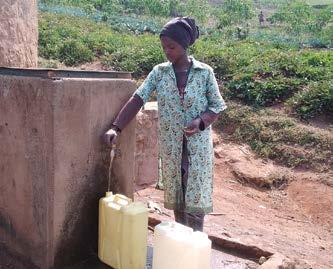

lived by begging, something that made Sylvine feel ashamed. She was emotionally distraught. By only eating one meal a day, she helped save food for her younger siblings. She knew it was not the way she wanted to live. But without parents, what else could she do?
To start, Sylvine registered three of her siblings for sponsorship through FH. Even though she herself had never completed school, Sylvine wanted her younger siblings to have that chance. Thanks to FH, the Sponsorship program covers school fees for her siblings. Currently, the youngest of the three is finishing up school.
Next, Sylvine tackled the problem of income for her household. FH provided her with chickens and goats to raise, along with coaching on how to best care for them. She even received a cow from the local government. She learned alongside her neighbours to care for the animals and sell the offspring to the market. Slowly, she built up enough money to start putting some away each week, thinking of the future.
By joining a Savings & Loans group, Sylvine saved up to repair and upgrade their home. The other members helped her stay on track in her savings, eventually helping her get to where she is now! Slowly but surely, Sylvine became the person others can lean on, too. Not only her siblings, but other members of the community who need help
with saving or selling their own livestock now look to her success and relied on her advice.
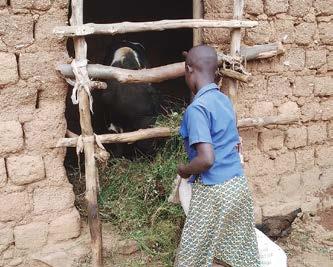
Sylvine’s path through life has not been easy, but she is giving it everything she has with the support of her community and local FH staff. Sylvine stands tall as an example to her community—an example of personal determination and of success in business. Her entire community has grown together, becoming stronger and more supportive as the years tick by towards graduation. Each year, more community members learn that sharing resources, knowledge, and expertise is how they can all thrive. That’s why Slyvine, a hurting member of their community, was able to grow into a respected leader.
It took plenty of mettle and a lot of support, but Sylvine’s life is blossoming into something she and the community are proud of. “I have been struggling for so long with my siblings, as the head of our family, to become an example in farming and business. One day I will sit with all the members of my family and celebrate our achievements with the help of FH!” says Sylvine.
Many others, like Sylvine, are ready to break out of extreme poverty, but need their resilience boosted with a bit of support. You can be the practical help they need by giving through the Gift Guide. Visit fhcanada.org/giftguide today.
Sylvine (25) and hear sister, Charlotte (20), stand outside their rehabilitated home. Thanks to Sylvine's hard work and saving, they've upgraded to a cleaner and more functional home. Sylvine lives close the local primary school, where she can access clean water. Charlotte helps with the household chore of feeding their cow. It's provided milk and calfs that Sylvine sells at the market.I have been struggling for so long with my siblings, as the head of our family, to become an example in farming and business. One day I will sit with all the members of my family and celebrate our achievements with the help of FH! — Sylvine
